Ogilvy Health UK and NABS campaign against microaggressions with throwaway comments that can’t be thrown away

Microaggressions are common in the UK workplace and across the marketing industry, especially involving employees from minority ethnic communities.
Microaggressions refer to verbal, behavioural or environmental slights, whether intentional or unintentional, that communicate derogatory or negative attitudes toward a stigmatised or culturally marginalised group. 51% of employees from these communities in the UK report experiencing them regularly, a higher percentage than in the USA or Canada. 1.
A growing body of research reveals that this covert discrimination has distinct, lasting negative impacts on the health and well-being of those at the receiving end.2. The impact of microaggressions causes increased rates of depression, trauma, anxiety, heart disease and type 2 diabetes.3.
To raise awareness of the issue, Ogilvy Health UK has partnered with NABS to create Throwaway Comments, a comprehensive collection of real-life stories of microaggressions in the workplace.
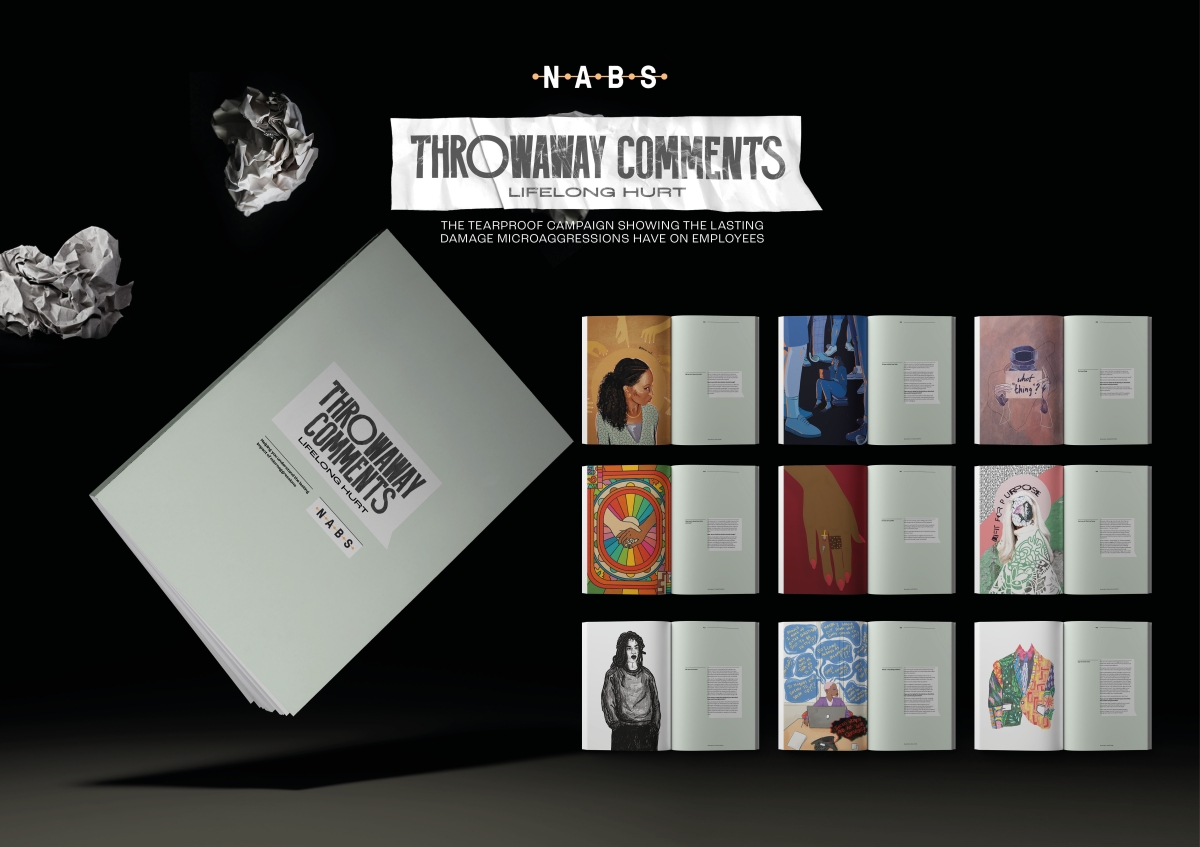
The book aims to establish understanding and empathy around the issues, which is key to creating more inclusive workplaces.
35 anonymised stories have been curated and brought to life by a diverse set of illustrators from within the communities most likely to be subjected to microaggressions.
The book, along with a set of indestructible posters, is being shared across the industry. The book has won two gold and two silver awards at last week’s LIA Awards.
Printed on tear-proof paper, the posters are screwed up into tight balls and open up to show the lasting impact that throwaway comments have.
“Microaggressions are insidious across every industry. They eat away at self-esteem and confidence. At Ogilvy, we’re dedicated to integrating diversity, equity and inclusion into the fabric of our business. We recognise the damage of microaggressions and are using creativity to address the challenges of exclusion. By communicating the impact of microaggressions in a compelling and innovative way we hope to stoke debate and challenge this behaviour.”Caroline Howe, CEO, Ogilvy Health.
Sue Todd, CEO, NABS adds: “Microaggressions have a lasting impact. We know this from people calling the NABS Advice line for support after their mental wellness has been damaged by hurtful comments. There is no ‘throwaway’ remark because it can take a long time to heal after being on the receiving end of one."
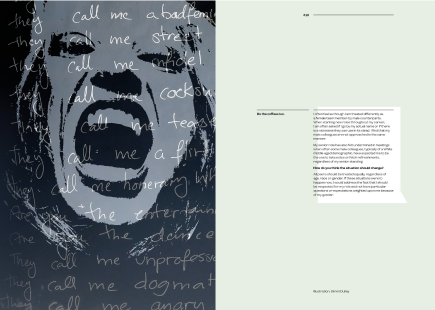
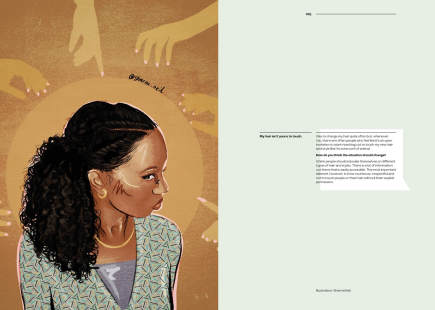
Examples...
My hair isn’t yours to touch.
I like to change my hair quite often but, whenever I do, there are often people who feel like it’s an open invitation to start reaching out to touch my new hair and style like I’m some sort of animal.
How do you think the situation should change?
I think people should educate themselves on different types of hair and styles. There is a lot of information out there that is easily accessible. The most important element, however, is to be courteous, respectful and not to touch people or their hair without their explicit permission.
My name is my name.
In a previous role, I was tasked with taking a new starter out for lunch and a query about my name came up. When she arrived in the morning, everyone in the team introduced themselves individually before settling down for the morning into their workloads.
Over lunch, my colleague and I were getting to know the new team member, laughing and learning more about each other, when she asked me what my real name was. I was taken aback at first, confused by the question, so reaffirmed my name for them, to which she replied: “Yeah, but what is your real name?” I am an ethnic minority and my name is Anglo-sounding, and I found it difficult to respond to the question.
I reiterated my name again, confirming to them that this is, in fact, my real name, and tried to laugh it off.
If you were to replay the situation(s) you described, how could it have gone better?
If I could replay the situation, I would have questioned why she thought my name wasn’t my “real” name and disclosed my feelings on the situation by letting them know that such comments and questions can make others feel embarrassed or awkward. I would have politely explained that even if it wasn’t my real name, I shouldn’t have to justify or explain why it is being used.
Why does it always have to be about sex?
I am bisexual, but many people wrongly presume that I’m a lesbian because I have a girlfriend, which then leads them to make sweeping assumptions about me and my lifestyle. It becomes awkward when I have to explain my bisexuality in this context because I feel like I have to reassure that person that I don’t “like” them.
How do you think the situation should change?
I think any situation where sexuality is concerned requires considerate judgement. I am happy with people asking me questions, but they shouldn’t assume I am willing to divulge personal information about my sexual life in a professional setting. Some people feel like it’s okay to probe because they believe me to be gay or know I am bisexual.
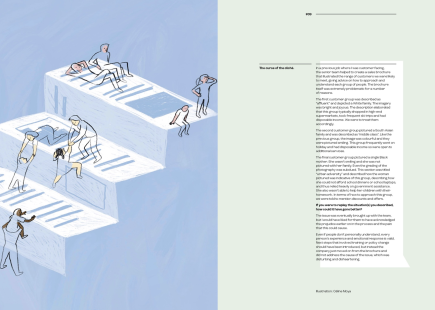
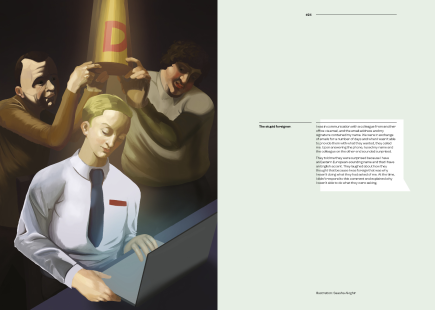
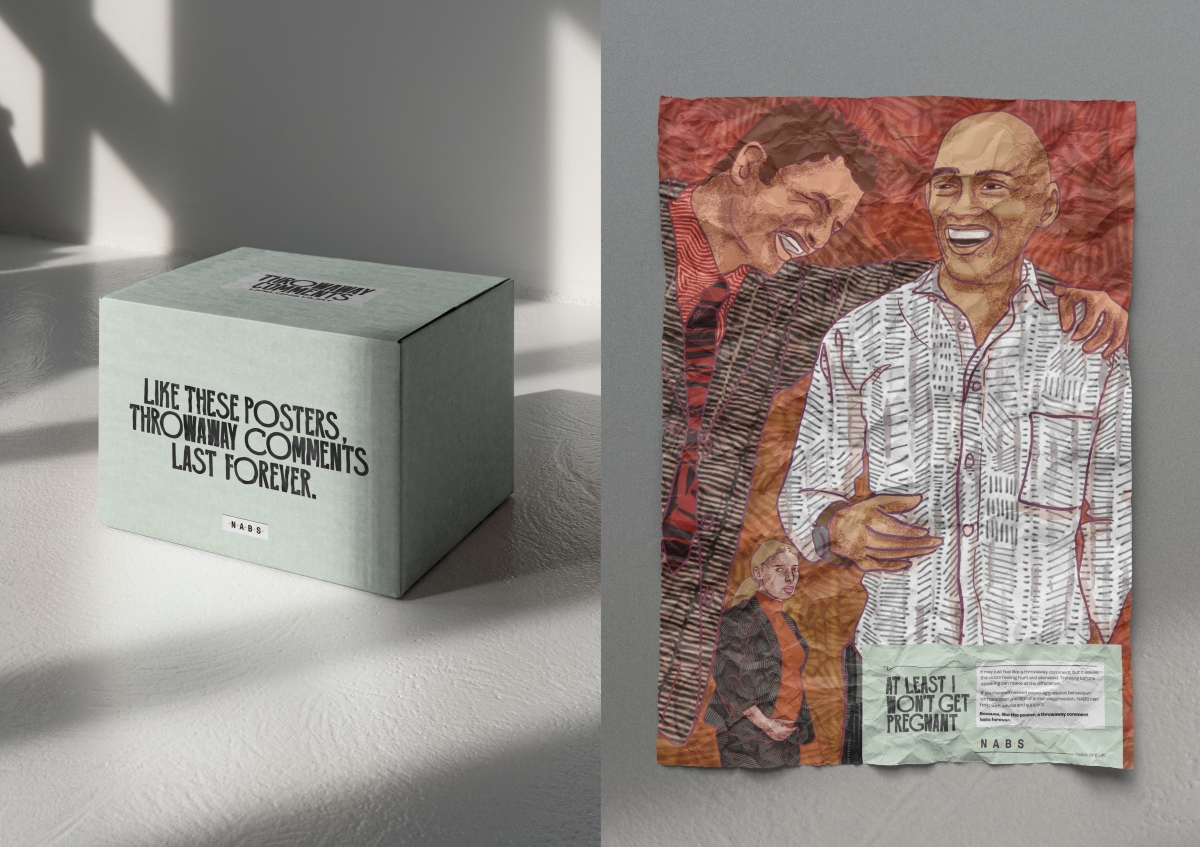
References:
If you enjoyed this article, you can subscribe for free to our weekly email alert and receive a regular curation of the best creative campaigns by creatives themselves.
Published on:





